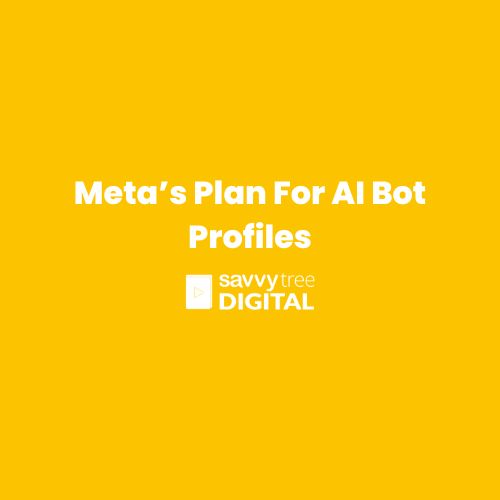Meta, the tech giant behind Facebook, Instagram, and WhatsApp, is no stranger to innovation. However, their latest endeavor might be one of their most ambitious yet: the introduction of AI-powered bot profiles within their apps. This initiative aims to populate these platforms with AI characters, each possessing unique profiles, bios, and the ability to generate and share content. While the concept might raise eyebrows, a closer look suggests that this plan could actually work, potentially reshaping social interaction as we know it.
The Rise of AI in Social Spaces
The integration of AI into social media is not entirely new. We’ve already seen AI algorithms curating content feeds, suggesting connections, and even moderating content. However, Meta’s plan takes this a step further by creating autonomous AI entities that can interact with users in a more human-like manner. These bots will not just be passive tools; they will have personalities, interests, and the ability to engage in conversations, potentially blurring the lines between human and artificial interaction.
Why This Could Work
Several factors suggest that Meta’s AI bot initiative could be successful:
- Enhanced User Engagement: AI bots can provide constant interaction and entertainment, potentially increasing user engagement on Meta’s platforms. They could offer personalized content, participate in discussions, and even provide companionship, catering to users’ diverse needs and interests.
- New Avenues for Content Creation: AI’s ability to generate content opens up exciting possibilities. Bots could create art, music, stories, and other forms of content, enriching the platform’s offerings and potentially attracting new users.
- Improved Customer Service and Support: AI bots could provide instant customer service and support within Meta’s apps. They could answer questions, resolve issues, and provide assistance, improving user experience and satisfaction.
- Facilitating Communities and Connections: Bots could be designed to foster communities around specific interests or topics. They could initiate discussions, share relevant information, and connect users with shared passions.
- Catering to Evolving User Expectations: Younger generations are increasingly comfortable with AI and expect more interactive and personalized experiences. Meta’s AI bots could cater to these evolving expectations, attracting and retaining younger users.
Challenges and Considerations
Despite the potential benefits, Meta’s plan also faces significant challenges:
- Ethical Concerns: The use of AI bots raises ethical questions about transparency, deception, and manipulation. Users need to be aware that they are interacting with an AI and not a human. Safeguards must be in place to prevent bots from spreading misinformation or engaging in harmful behavior.
- Maintaining Authenticity: The presence of AI bots could dilute the authenticity of social interaction. Users might feel less connected if they know they are interacting with artificial entities. Meta needs to find a balance between AI interaction and genuine human connection.
- Technical Hurdles: Creating AI bots that can convincingly mimic human interaction is a complex technical challenge. Bots need to be able to understand natural language, generate coherent responses, and adapt to different conversational contexts.
- Potential for Misuse: AI bots could be misused for malicious purposes, such as spreading propaganda, manipulating opinions, or creating fake accounts. Meta needs to implement robust measures to prevent such misuse.
The Future of Social Interaction
Meta’s plan to unleash AI bot profiles is a bold move that could redefine social interaction. While challenges and concerns remain, the potential benefits are undeniable. If executed responsibly, this initiative could enhance user engagement, create new avenues for content creation, and improve customer service. It could also cater to evolving user expectations and facilitate communities and connections.
Ultimately, the success of Meta’s plan will depend on their ability to address the ethical concerns, maintain authenticity, overcome technical hurdles, and prevent misuse. If they can achieve this, AI bots could become an integral part of our social experience, ushering in a new era of human-computer interaction.

